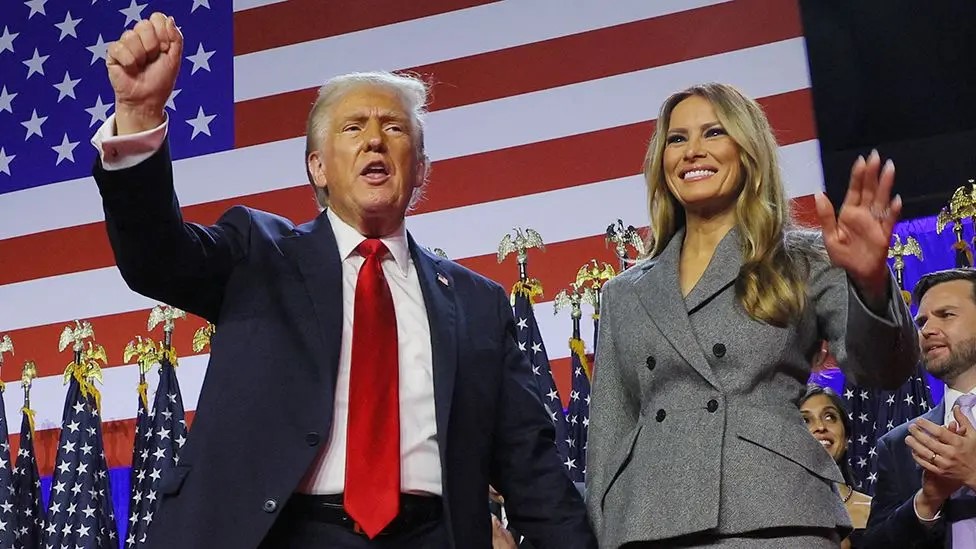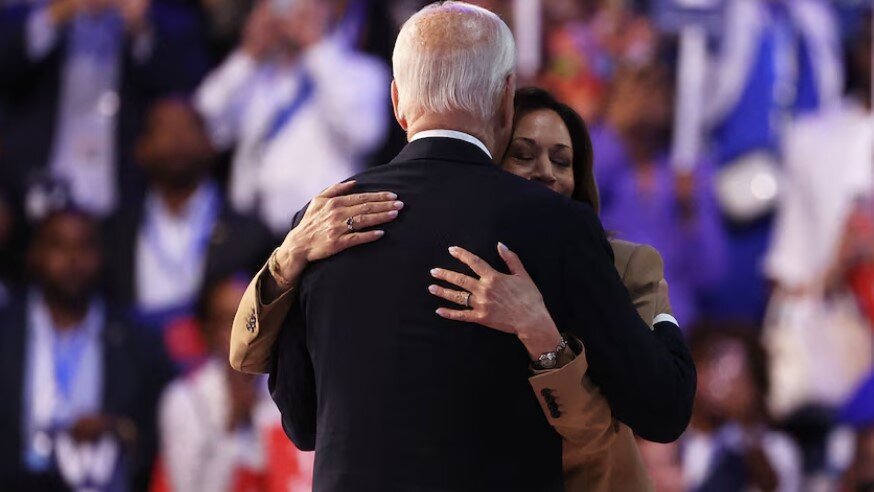The results are in, and contrary to polls suggesting Kamala Harris held a narrow lead in a handful of swing states before the vote, Donald Trump has swept to a resounding victory in the U.S. presidential election, on course to secure as many as 315 electoral college votes, substantially clearing the required threshold of 270.
To his own delight as he declared himself the winner at a raucous gathering in Mar-a-Lago, Trump also looks to have secured the popular vote, something that eluded him when he beat Hillary Clinton in 2016. What’s more, the Republicans are on course to win a majority in the Senate and may manage to clinch the edge in the House of Representatives, handing Trump a powerful legislative mandate.
There will be a deluge of post-match analysis to try to make sense of how the 78-year-old former president pulled off such a convincing victory, but the bottom line seems to be the economy. Forget the lawsuits, the accusations of fascism, the Jan. 6 storming of Congress. Many Americans feel worse off now than they did four years ago. They believe Trump when he tells them he will bring back a “golden age” of America — cutting taxes, imposing tariffs, reviving manufacturing, reducing inflation. Rightly or wrongly, many recall Trump’s first term as a time of lower taxes, more jobs, higher growth and greater opportunity – a more robust and self-confident America. That’s particularly true among non-college-educated men, whether white, Black or Latino, surveys show.
So, what does another four years of Trump herald for the United States and the world?
In his victory speech – delivered before he’d officially been declared the winner – Trump provided early signals. His tone was arguably more moderate and inclusive than it has been in the past, calling the result a “magnificent victory for the American people”, one that “has given us an unprecedented and powerful mandate”, and saying it would “help our country heal”. Whereas in 2016 his tone was almost doom-mongering as he secured victory, this time he offered hope and made sure to thank not only his family but also the electorate.
As Trump spoke, the U.S. dollar strengthened, bond yields rose (an indication that markets expect his tax cuts to be inflationary and interest rate cuts to be delayed), and Wall Street was on course to open substantially higher, with futures on the S&P 500 index climbing by 2 percent.
In concrete terms, Trump’s second term as president promises to bring significant change. He’s pledged to rescind much of Biden’s landmark Inflation Reduction Act, which supercharged U.S. investment in and subsidies for renewable energy but may also have contributed to higher inflation. Trump has said he will approve new liquified natural gas terminals, slash regulations on greenhouse gas emissions and remove incentives for electric vehicles.
On trade, Trump is threatening heavy tariffs on Chinese imports, which is likely to affect everything from broad consumer goods to aviation to the tech sector, depending on how the tariffs are structured. He wants lighter regulation on U.S. banking, finance and antitrust rules, potentially weakening the oversight that the Securities Exchange Commission and the Federal Trade Commission provide, including on sectors like crypto. U.S. bank stocks rose sharply. Shares in Tesla, whose chief executive Elon Musk is one of Trump’s highest-profile supporters, rose more than 12 percent ahead of the U.S. market opening.
When it comes to healthcare – a policy that barely featured during the election campaign – Trump has suggested he will make another attempt to repeal Obama’s Affordable Care Act, with the risk of increased prices for medicines.
For the wider world, the ramifications are equally profound. China, in the midst of trying to reboot its economic model, will be wondering how to plan for the impact of swingeing tariffs on its exports to the world’s largest economy. Ukraine, locked in a war launched by Russia that neither side is positioned to win, will fear the possibility of Trump, backed by Congress, rolling back some of the support it has received and coming under renewed pressure to strike a peace deal with Putin. Zelenskyy was one of the first world leaders to congratulate Trump.
Europe, fretful about its trading relationship with the United States and the security threat from Russia, will worry about Trumpian tariffs and the warnings he has previously issued about pulling out of NATO unless European states ramp up their own defence spending.
With the COP climate talks taking place in Baku, Azerbaijan, later this month, there will be deep concern that Trump will again pull out of the Paris Climate Accords, which committed the world to reducing carbon emissions and capping global warming.
The UK, too, has reason to quail. While Prime Minister Keir Starmer was quick to congratulate Trump, during the election campaign the now-president-elect was highly critical of Starmer and the Labour party for allowing party political operatives to help canvas for Harris in the United States.
There will be many other repercussions from Trump’s return as the 47th president. One thing is for certain, though — Trump is at best unpredictable. The full impact for the United States and the world may take some time to emerge, and even then there will be surprises.
A view from one of Portland’s US colleagues:
Katherine Connolly, Account Director in Portland’s International team, worked with the 2016 Clinton campaign in North Carolina, and was back in the state in October to support the successful gubernatorial race and several local candidates. Despite Governor-Elect Josh Stein’s success, she was never optimistic about the swing state voting for Harris for president. “We struggled to cut through Trump’s noise in 2016, and I heard the same thing when speaking to voters this election. Frustration with politics, frustration with the economy, and a desire for change – and that was never going to be a sitting vice-president, who never had the chance to establish a policy platform beyond promising more of the same.”
But she also has some words of warning for the elated Republican party. “This is as clear of a mandate as you can get – but that also means that there is nowhere to hide. Trump knows that anything he wants and doesn’t get, it’s his own party blocking him: and if anything goes wrong nationally, there’s no Democratic House or Senate left to blame. Democrats can and will plaster everything this Republican administration does – or fail to achieve – onto ads across the country in 2026 and 2028, and it will be hard to hold on to this kind of success.”
Photo credit: @Reuters






